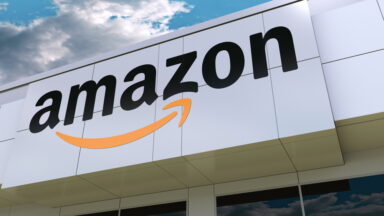The rise of the COVID-19 pandemic has caused massive economic fallout and job layoffs, especially in marginalized communities. According to a survey by the Centers for Disease Control and Prevention (CDC), nearly 41% of respondents said that they have experienced symptoms of anxiety and depression or having some adverse mental health condition as a result of the public health crisis. Now, one civil-rights-attorney-turned-advocate is creating a new app to service those in underserved communities dealing with mental health issues.
Areva Martin is the founder of the Butterflly App. This consumer-based app allows users to connect with others that may be experiencing similar symptoms and provide resources for them to seek treatment. In an interview with BLACK ENTERPRISE, Martin talks about creating a platform like this and the importance of discussing mental health within the Black community.
Ginsburg to lie in repose at Supreme Court this week
BE: What motivated you to create the Butterflly app?
Martin: I created Butterflly Health because I am the population the platform seeks to serve. [The Butterflly App] is a first-of-its-kind digital therapeutic platform that focuses on underserved and underrepresented Medicaid populations. Butterflly delivers high quality, evidence-based, culturally sensitive digital behavioral health therapies in a more scalable, destigmatized way than traditional in-person therapy.
I am a former Medicaid recipient until I was an adult. My godmother and grandmother raised my brothers and me in a housing project in North St. Louis. We survived on her government disability check, food stamps, and our healthcare was provided by Medicaid. I know firsthand how difficult it was to get medical appointments, to have access to specialists, and to feel like my health mattered. When I felt anxiety or sadness, I kept it to myself. Talking about feelings was taboo. And I didn’t know that some professionals or interventions could help. And anyone in my community who did talk about their emotions was told not to or was labeled “crazy.” It just wasn’t cool to talk about mental health or emotional issues in my community.
Fast-forward to today, not much has changed. African Americans still struggle with acknowledging mental health issues, seeking support, and openly working on their mental and emotional health. Despite the needs, only one in three African Americans who need mental healthcare seeks it out. I created Butterflly to change this reality. I wanted to create a digital solution that is personal, private, destigmatized, and culturally sensitive and available 24/7 to help people, particularly people of color, improve their mental and physical health. We want everyone in America to have access to emotional and mental health intervention without ever stepping foot in a doctor’s office and being as easy as a click of a phone button.
Why was it important for you to create a service like this aimed for the Black community?
This was important to me because I was taught that to whom much is given, much is expected. Growing up in a housing project in poverty, you experience tremendous trauma. For some, the psychological toll leads to substance abuse, incarceration, mental and physical illness. I was one of the lucky ones. I was able to navigate the many obstacles I experienced and was fortunate to earn a scholarship to the University of Chicago, go on to Harvard Law School. I have been able to build successful businesses and have a successful legal and media career.
Using my platform, connections, and expertise to give back is not unique, but hopefully, what anyone who has similar opportunities would do. Also, the health tech industry has an abysmal record when it comes to African American founders. Black female founders receive less than .0006 percentage of venture capital for tech startups. I am hoping to change this with Butterflly.
How can users benefit from your app?
Users benefit from the app by having access to private, destigmatized 24/7 mental health and wellness tools, peer group forums, certified coaching, and licensed therapists. Also, as individuals use the platform and engage with our standardized health assessments, they create personalized health records that they control. Controlling one’s own health data and records is power!
Source: Meet The Civil Rights Attorney Creating A Mental Health App For Underserved Communities


Recent Comments